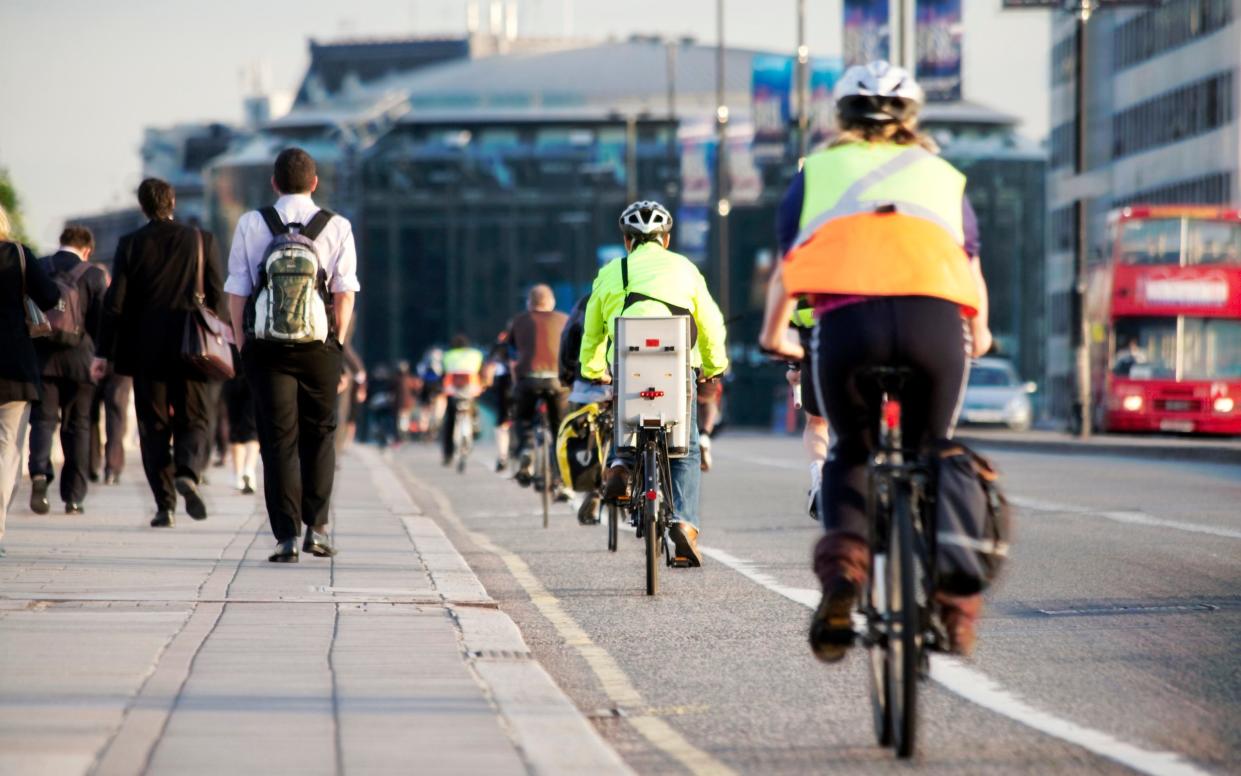Cycle lane on London roundabout would increase congestion by 800pc, report says

A cycle lane planned for one of London’s busiest roundabouts will cause an 800 per cent increase in traffic congestion, an independent report has claimed.
Holland Park Traders Association (HPTA) has commissioned transport experts to analyse proposals drawn up by Transport for London (TfL) to transform a roundabout in West London.
TfL intends to create a “high-quality cycleway with improvements for pedestrians” on the roundabout between Shepherd’s Bush Green and Holland Park Avenue amid claims it is one of the most dangerous junctions in the capital.
The works will involve turning some lanes currently used for vehicles into “new protected” two-way cycle lanes with signals halting traffic to allow cyclists to cross the roundabout.
However critics of the scheme claim it will slow bus times and create gridlock.
Independent analysis commissioned by the traders association found the proposed cycle lane will “lead to significantly longer traffic delays”, “increased traffic displacement” on to residential streets, an “increased risk of accidents”, as well as “significant bus delays” and less passing trade for the shops on the famous tree-lined Holland Park Avenue.
TfL insists that it needs to make the changes after 59 people – including 14 cyclists and pedestrians – were injured in collisions there in the three years to last May.
But the study questioned the accident data, claiming only one cyclist was injured during that period, while no pedestrians were hurt at all.
The transport analyst’s modelling found that the morning rush hour – from 8am to 9am – would see the current queue of 19 vehicles on Holland Park Avenue soar to 170 cars, lorries and buses, a 795 per cent increase leading to a 12-minute wait for motorists idling in gridlock.
During that same hour, the current 24 vehicles that get stuck in traffic would rise to 78, a 225 per cent increase leading to an average five-minute wait.
The afternoon rush hour – from 6pm to 7pm – would experience a 159 per cent increase and average 11-minute wait in traffic as the current 49 vehicles stuck in traffic is predicted to rise to 127 on Holland Park Road.
On Holland Road, the current average 52 vehicles stuck in traffic rises to 206, a 296 per cent increase creating an average seven-minute wait.
Local opposition
More than 3,000 residents have signed a petition set up by Felicity Buchan, the Tory MP for Kensington, opposing the plans.
A spokesman for HPTA said: “This £6.3 million scheme is once again an example of TfL’s poorly researched and poorly designed schemes that are not fit for purpose.
“This scheme will close the local independent shops that local residents have tried so hard to protect these past decades. Whilst car journeys account for only 10 per cent of our customers, the sales they make equate to 25 per cent of turnover, meaning they have larger spending power and also tend to use all the local artisan shops together.”
A spokesman for the Holland Park Residents’ Association said the traffic-modelling study shows TfL’s proposals “would cause an alarming increase in delays and a consequential extremely worrying increase in traffic” on the road.
Ms Buchan said: “This report confirms my concerns that these proposals will lead to more congestion, significant bus delays and damage to local businesses. Over 3,000 residents have signed my petition and the evidence is overwhelming – TfL must scrap this scheme.”
TfL has previously claimed its modelling found the new cycle lane would not have “significant impacts” on motorists or buses.
A six-week consultation was held by TfL that ended in March.

 Yahoo News
Yahoo News 
